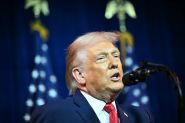
Conference in Support of Lebanese Army to be Held on March 5 in Paris
This is Beirut 14/01 13:30

This is Beirut 14/01 13:30

This is Beirut 13/01 09:05

This is Beirut 13/01 08:50

This is Beirut 12/01 15:20

This is Beirut 12/01 11:50

This is Beirut 15/01 16:50

This is Beirut 15/01 09:25

This is Beirut 15/01 09:10

This is Beirut 14/01 20:55

This is Beirut 14/01 19:15
Hala Abdallah 13/01 17:00
Maroun Chahine 2025-12-31 11:30
Hala Abdallah 2025-12-30 17:00
Maria Chami 2025-12-30 13:00

This is Beirut 2025-12-21 15:05

This is Beirut 2025-12-21 12:05

Eleonore Stephan for Huna Lubnan 2025-12-21 09:05

This is Beirut 2025-12-20 18:05

This is Beirut 2025-12-20 16:05

This is Beirut 12/01 18:15

This is Beirut 09/01 20:40

This is Beirut 08/01 17:30

This is Beirut 07/01 20:45

This is Beirut 06/01 17:00

Makram Haddad 2025-12-19 08:40

Makram Haddad 2025-12-18 08:50

Makram Haddad 2025-12-17 11:30

Makram Haddad 2025-12-16 09:30

Makram Haddad 2025-12-12 11:10

Bélinda Ibrahim 2025-12-17 11:00

Makram Haddad 2025-12-17 08:50

Bélinda Ibrahim 2025-12-11 10:30

Bélinda Ibrahim 2025-12-10 12:00

Bélinda Ibrahim 2025-12-04 15:05